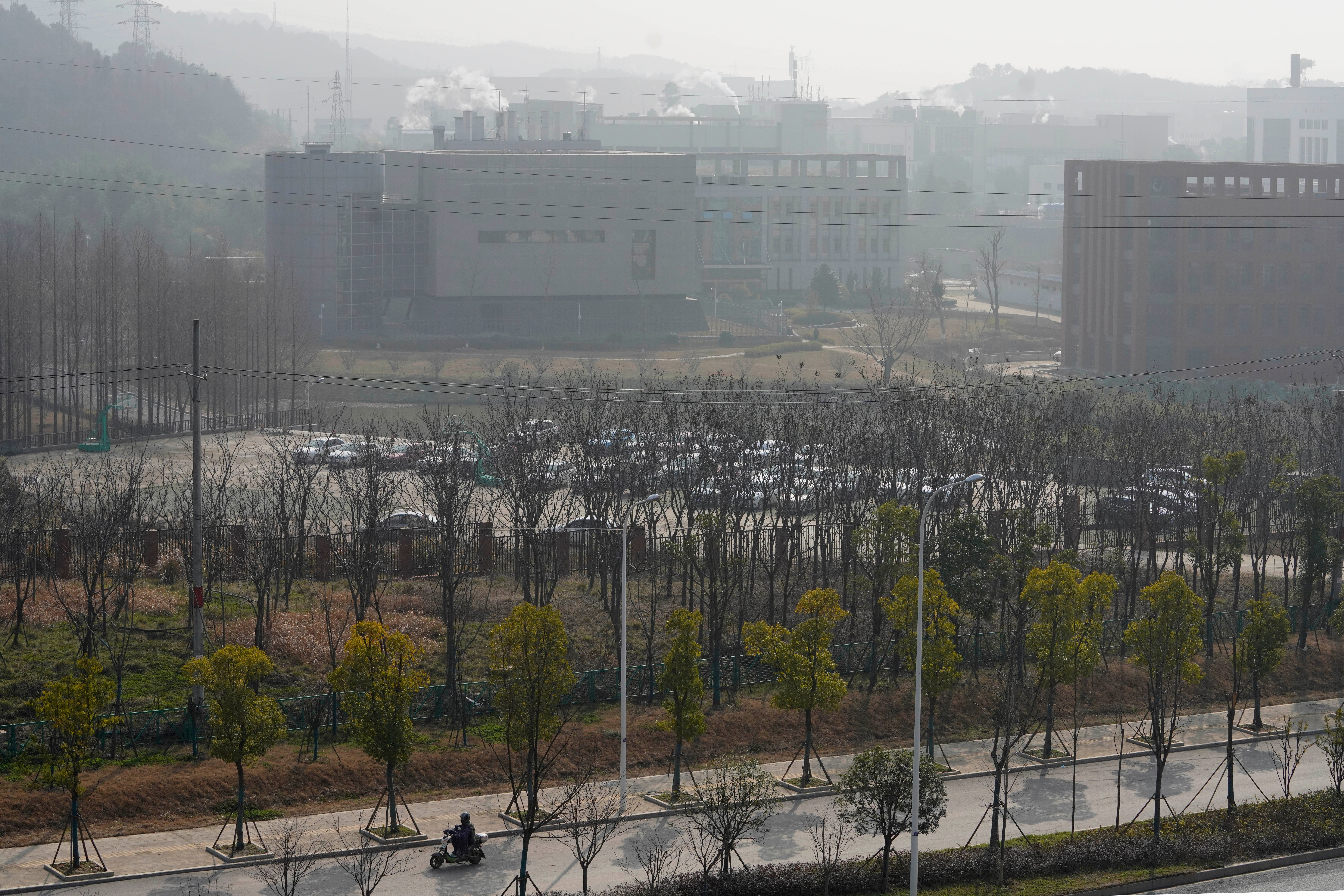WHO team visits Wuhan lab at centre of virus ‘leak’ theories
The lab visited by WHO is equipped to handle the most dangerous Class 4 pathogens

Your support helps us to tell the story
From reproductive rights to climate change to Big Tech, The Independent is on the ground when the story is developing. Whether it's investigating the financials of Elon Musk's pro-Trump PAC or producing our latest documentary, 'The A Word', which shines a light on the American women fighting for reproductive rights, we know how important it is to parse out the facts from the messaging.
At such a critical moment in US history, we need reporters on the ground. Your donation allows us to keep sending journalists to speak to both sides of the story.
The Independent is trusted by Americans across the entire political spectrum. And unlike many other quality news outlets, we choose not to lock Americans out of our reporting and analysis with paywalls. We believe quality journalism should be available to everyone, paid for by those who can afford it.
Your support makes all the difference.A team of World Health Organisation investigators visited the P4 lab inside the Wuhan Institute of Virology, which has remained at the centre of conspiracies and speculation of the source of coronavirus.
The WHO’s team began the investigations last week in Wuhan, where the first cases of Covid-19 were detected before it spread across the world.
The team is tasked to gather data and search for clues as to where the virus originated and how it spread amid intense scrutiny and diplomatic pressure from China as well as rest of the world as pandemic ravaged lives of millions of people.
The lab became the focal point of speculations and WHO’s operations in China after reports indicated that the new coronavirus, known as SARS-CoV-2, might have leaked from the lab - equipped to handle most dangerous Class 4 pathogens and has the largest virus bank in Asia.
The lab is affiliated with the central government-run Chinese Academy of Sciences, the one which officials in the Donald Trump administration associated with “leak” and speculating it as a bioweapon.
China has strongly denied that possibility and has promoted theories that the virus may have originated elsewhere or even been brought into the country from overseas with imports of frozen seafood tainted with the virus, a notion roundly rejected by international scientists and agencies.
The lab in question is a Biosafety Level 4 (BSL-4) and is designed to study the pathogens that are highly transmissible as well as fatal.
The research lab built an archive of genetic sequences of bats after the 2003 outbreak of Severe Acute Respiratory Syndrome (SARS). That has led to unproven allegations that it may have a link to the original outbreak of COVID-19 in Wuhan in late 2019.
Following two weeks in quarantine, the WHO team that includes experts from 10 nations has visited hospitals, research institutes and a traditional wet market linked to many of the first cases.
The first clusters of COVID-19 were detected in Wuhan in late 2019, prompting the government to put the city of 11 million under a strict 76-day lockdown. China has since reported more than 89,000 cases and 4,600 deaths, with new cases largely concentrated in its frigid northeast and local lockdowns and travel restrictions being imposed to contain the outbreaks.
The team also visited Huanan seafood market, which was shut down after pneumonia-like cases first emerged in late 2019 and also a suspected source of virurs.
"It's clear that something happened in that market," Peter Ben Embarek, the leader of WHO team, was quoted by CNN. "But it could also be that other places had the same role, and that one was just picked because some doctors were clever enough to link a few sporadic cases together."
The team has suggested that confirmation of the origins of the virus is likely to take years as the world’s eyes are set on their findings from China.
Additional reporting by agencies
Subscribe to Independent Premium to bookmark this article
Want to bookmark your favourite articles and stories to read or reference later? Start your Independent Premium subscription today.



Join our commenting forum
Join thought-provoking conversations, follow other Independent readers and see their replies
Comments